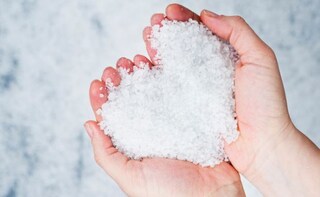The alarming rise of heart attack cases in India has been a cause of concern for doctors and researchers across the subcontinent. The scenario is perverse especially amongst men. According to the Indian Heart Association, "50% of all heart attacks in Indian men occur under 50 years of age and 25% of all heart attacks in Indian men occur under 40 years of age."
6. DiabetesA diabetic patient’s body gradually loses its sensitivity to insulin, which leads to elevated blood sugar levels, also known as impaired glucose tolerance. If the levels are not kept under check, severe damage can cause damage of the artery walls leading to a stroke.
7. High Blood Pressure (Hypertension)In high blood pressure, the pressure within the arteries is higher than normal, which impedes the natural elasticity of arteries. It also results in a larger outflow of blood pumped out of the heart, which disturbs the natural balance and leads to coronary diseases or stroke.
8. Obesity and Physical InactivityObesity is harbingering of many diseases, and heart diseases top the list. An obese person’s diet is laden with saturated fats, which can trigger a heart attack. Studies also reveal that those who carry the bulk of their body fat around their belly are at greater risk of heart disease than someone whose body fat tends to settle around their bottom, hips and thighs.
Advertisement
Advertisement
Advertisement
6. Diabetes
Advertisement
7. High Blood Pressure (Hypertension)In high blood pressure, the pressure within the arteries is higher than normal, which impedes the natural elasticity of arteries. It also results in a larger outflow of blood pumped out of the heart, which disturbs the natural balance and leads to coronary diseases or stroke.
8. Obesity and Physical InactivityObesity is harbingering of many diseases, and heart diseases top the list. An obese person’s diet is laden with saturated fats, which can trigger a heart attack. Studies also reveal that those who carry the bulk of their body fat around their belly are at greater risk of heart disease than someone whose body fat tends to settle around their bottom, hips and thighs.
For the latest food news, health tips and recipes, like us on Facebook or follow us on Twitter and YouTube.
Advertisement
